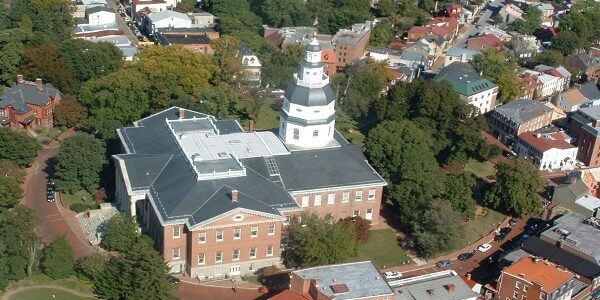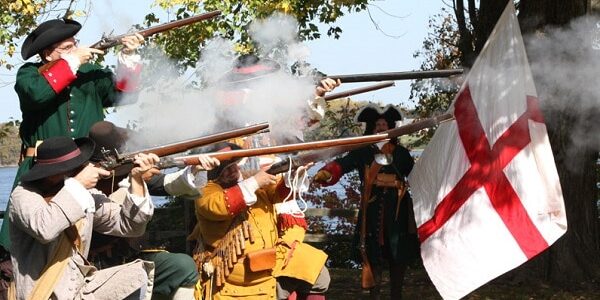Our History
From the area’s first native inhabitants, to colonists, to the watermen still working the water today, there’s no shortage of history to be found in the Chesapeake Crossroads Heritage Area. With art, African-American Heritage, preserved examples of Annapolis’ “Golden Age,” the Chesapeake Bay, and the United States Naval Academy, there’s plenty to explore. Annapolis served as our nation’s first peacetime capital. Maryland’s four signers of the Declaration of Independence had homes here, which are a few minutes’ walk from each other and can still be visited and enjoyed today. A walk down our brick-lined streets puts you in touch with four centuries of history and architecture. Annapolis has a greater concentration of 18th-century brick buildings homes than any other city in the nation, making a visit to Annapolis truly a walk down memory lane.

Visit buildings once frequented by men like George Washington, the Marquis de Lafayette, and Thomas Jefferson, or the exact room where the Treaty of Paris was ratified to end the Revolutionary War. Or stop by the Maryland State House – the oldest in continuous legislative use – for a peek into the room where George Washington resigned his military commission to the Continental Congress. Take a stroll through town and you’ll see firsthand that every brick seems to hold its very own story.

Stories from other areas of Anne Arundel County recall the lives of generations of farmers and watermen, shaped by the Chesapeake Bay and the rich farmland that surrounds it. Head over to Historic London Town for a glimpse into one of the area’s earliest settlements, where an active archaeological site and museum showcase centuries of native artifacts.
